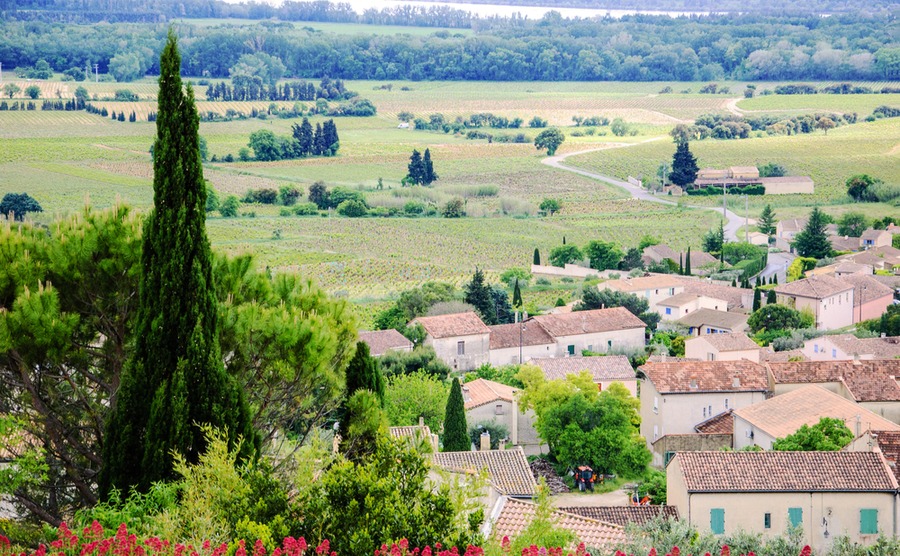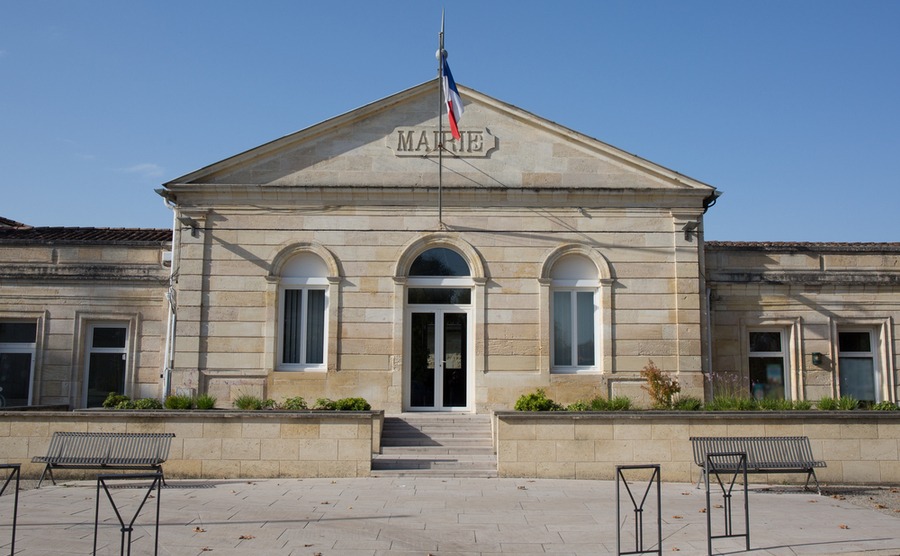If you’re making a life-changing move to France, maybe you want to make it perfect. And one way to do that could be to build your own house. Think how thrilling that would be. We’ve all imagined it. What we would like, what our priorities would be, what it would be made of and most of all, what the outlook would be, from rolling fields, glittering seas, charming vineyards, to soaring mountain ranges….
In the UK many people discount the idea of building their own home because we know how expensive land is and how hard it is to get planning permission (albeit we do have a very efficient planning service, and speaking the language also helps). In France, anyone can buy land including foreigners, and building your own home is very common – many new-build companies exist that will hold your hand through the whole process. So, if you are thinking of moving to France, and would like to build your own home, how would you find the perfect plot of land to build on, what would it cost, and what do you need to bear in mind before you commit to the project?

Land in France can be surprisingly cheap compared to the UK.
How much does land in France cost?
As a rough guide, here is a guide to the average prices of land in France in a few popular regions, and for a plot of 1,000 square metres. Not all land will be suitable for building (constructible) of course, although this should be clearly identified in adverts for sale.
| Normandy | €60,000 |
| Brittany, Pays de la Loire | €90,000 |
| Charente | €40,000 |
| Occitanie (including the coast around Perpignan) | €120,000 |
| Auvergne | €120,000 |
| Provence-Alpes-Côte d’Azur | €170,000 |
| Burgundy | €50,000 |
| Nord (including Picardie) | €120,000 |
| Île-de-France (including Paris) | €300,000 |
Where can I find land to build on in France?
Most online property websites, such as France Property Guides’ own, offer the option to search for land as well as apartments and houses, so they’re a good place to start, once you identify the area you’d like to live in. You can often filter your search for sites offering a nice view or a south facing exposure, so this can help you narrow down your choices.
Most plots of land for sale in France will identify whether they are suitable for building, and if they come with permission to build (certificat d’urbanisme). In order to start work, you will also need to apply for a building permit that allows you to put up the particular home you have in mind (permission de construire).
Worried about Brexit? Don’t be – find out how you can live here even in the case of a no-deal Brexit with our guide, How to Live in France After Brexit.
If the local town or village (commune) has created a housing estate for new builds (lotissement) within the last ten years – no problem – your parcel will already have planning permission automatically. Many communes, especially in rural areas, have lotissements, providing basic infrastructure such as supply roads and sewerage within the boundaries, and electricity and water to each marked plot. The commune will stipulate the type and style of house you will be allowed to build within the lotissement.
If you are interested in an isolated piece of land outside a lotissement, your first stop will be to the local town hall (mairie) to consult the local plan (Plan Local d’Urbanisme) (PLU), if one exists. The PLU will set out in detail any requirements for new builds, such as maximum elevations, and may be very precise about building design (slope of the roof, types of stone, nature and colour of paintwork and style of shutters for example), especially if your plot is within 500 metres of a classified historic building. Even communes without formal PLUs will be able to give you guidance about the classified zones within their limits.
The PLU will consist of a map of the local area, categorised by the type of land (agricultural, recreational and so on), and whether building is allowed or not.
Find homes in France via our property portal.
Things to watch out for when buying land to build on in France.
Unlike a property purchase in France, buying land is not highly regulated, so it’s extremely important to do your research thoroughly before committing, as mistakes can be costly.
Types of land
While technically, you may be able to build on your dream plot, because it is constructible, does this mean that your dream house is in the bag?
Technically, whereas you can build a house on any type of land, certain types of land are tricky (and costly) to work with, such as clay, or because access is difficult. It’s also important to discover whether there are any underground conditions such as mines or water tables that would make the land damp or unstable.
The town hall and local notaries will be able to help you with your enquiries and may hold geological surveys that cover the area within which your plot is located. It’s a good look to ask neighbours too, and take a good look at the surrounding properties to get an idea of the local building style – do they have cellars for example, a good sign that flooding isn’t an issue.
You can also engage the services of a local surveyor who will examine the site and take readings of the soil and bedrock at a cost of between €2 and €3,000, although this could mount to around €5-9,000 for plots that are more complex.
While sellers are not obliged to provide a survey of their plot, they do have to alert buyers of any problems of which they are aware, and it’s advisable to include in your purchase contract a condition as to the nature of the ground conditions, so that you can pull out if the survey is unfavourable.
As with any house purchase, a cautious land buyer will make local enquiries about any upcoming developments such as airports or wind farms that could impact the land. As well as the PLU, some town halls have a plan showing local risks such as flooding and avalanches zones, and the Ministry of the Environment also shows for each commune a map of natural risks affecting each zone. The ministry also provides a list of all sites that were previously industrial in nature, and which have environmental conditions that make building on them undesirable.
Servicing your plot
As we’ve seen, if you buy a plot of land within a local lotissement that has already been laid out and serviced for future construction, you won’t need to worry about getting power and water to your plot. If you buy off-plan, these costs can be expensive – budget for between €18-25,000 euros, and more if you have to provide a septic tank. Depending on the ground conditions, these can set you back from between €6-20,000, and have to be inspected and certificated by the town hall as conforming to sanitary regulations.
Avoiding disputes with neighbours
Finally, in order to avoid future boundary disputes and to determine the size of house you will be allowed to build, you should be sure to state in the contract for sale the precise area and limits of the plot. Certain communes limit the size of house allowed, and this is calculated in reference to the surface area of the land, so on a parcel of 1,000 square metres, you would be allowed a house with a living area of 100 sqm for example.
You can ask the vendor to certify the boundaries of the plot, or you can engage a specialist géomètre-expert to do this for you, at a cost of around €1,800, although you can always ask your potential neighbours to share this with you if you are keen to avoid disputes.

Your mairie is an important stop-off point in researching your potential plot of building land in France.
Outline planning consent
If you have satisfied yourself that the land is, in principle, suitable for building on, but isn’t certified for planning, a possible step is to ask the mairie for a provisional ‘certificate d’urbanisme’ or outline planning consent. This will enable you to judge whether the project is viable in terms of any technical constraints and architectural rules. You can always put a clause in the purchase contract making it subject to your obtaining planning consent and a building permit (be extremely precise about the nature of house you are intending to build), so you can pull out of the sale if you don’t obtain it within a specified period.
Note that planning permissions only last for 12-18 months and building permits for 2 years.
Next steps
If you are building a house of more than 170sqm, you will by law have to engage an architect to draw up your plans. They will also be able to liaise with the mairie to check whether your ideas are likely to be approved, and may also help you find a builder and get a realistic idea of costs.
Find out how to fund your land purchase with your free France ‘How to Pay for It’ Guide.
French builders are required to provide detailed estimates or ‘devis’, and if you haven’t engaged an architect, you need to be extremely precise in specifying the plans and drawings as well as the materials to be used in future home in order to get an accurate idea of the likely build costs.
Another option is to use a new build company, where you can choose from a range of designs. Websites such as seloger-construire.com have details of new build companies that have pre-packed designs, permits and build plots already identified. These types of companies will also organise the build and supervise contractors, and you will make staged payments as the work progresses. Websites such as www.maison-travaux.fr are also a helpful resource for building advice and to find new build companies, as well as being full of helpful tips as to materials and suppliers.
As a final note, if you do decide to build your own home in France, it’s looking like a good investment. House prices in many areas remain buoyant, and the future looks bright in L’Hexagone, so your hard work and diligent research may prove a very wise investment in years to come!
Keep tuned over the coming weeks for part two of this series, on architects and planning permission, and part three, for more on finding builders.











